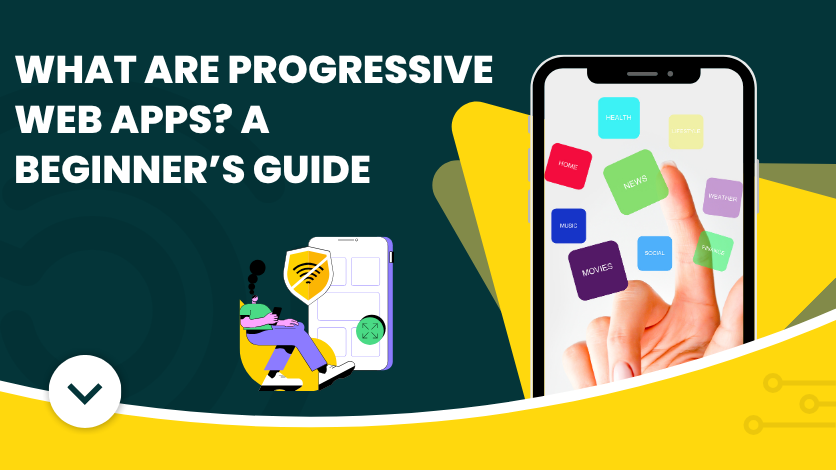In the dynamic realm of technology, mobile app programming has quickly become essential, driven by the rapid increase in smartphone usage and demand for innovative apps. From social networking to gaming and productivity tools, phone app programming opens a world of possibilities, allowing developers to turn creative ideas into functional, impactful applications. With this rise, knowing how to program mobile apps has become a key skill for aspiring developers, enabling them to tap into this vibrant industry and design applications that make a difference.
This guide will explore the fundamentals of mobile app programming, helping you understand the steps involved in building, testing, and launching apps across various platforms. Additionally, choosing the best programming language for phone apps is a critical factor, as language selection determines app compatibility, user experience, and long-term success. In this journey, we’ll discuss essential languages, frameworks, and tools to set you up for efficient, effective app development and help you build a strong foundation for mobile programming mastery.
Understanding the Basics of Mobile App Programming
Embark on your coding journey by grasping the fundamental concepts of mobile app programming. Explore the architecture of mobile applications, understand the role of frameworks, and delve into the core components that bring an app to life. Building a strong foundation is key to navigating the coding landscape effectively.
Choosing the Right Programming Language for Your Mobile App
Starting with mobile app programming means mastering key concepts that form the backbone of app development. This includes understanding mobile app architecture, essential frameworks, and core components like UI design, data storage, and networking. Choosing the right framework, such as Swift for iOS, Kotlin for Android, or cross-platform options like React Native, is crucial as it impacts performance and development speed.
Key elements include using APIs to integrate external services, implementing mobile security, and adding features like offline access and push notifications. By grasping these basics, you’ll be well-prepared to build efficient, scalable apps that meet user expectations and are easy to maintain.
Tips and Tricks for Efficient Mobile App Development
Efficiency is the hallmark of a skilled coder. Uncover practical tips and tricks to streamline your mobile app development process. From code organization to debugging techniques, learn how to write clean, maintainable code that enhances productivity and sets the stage for successful app development.
-
Testing and Debugging: Ensuring Functionality
A flawless user experience begins with a bug-free application. Explore the importance of rigorous testing and debugging in the mobile app development lifecycle. Discover tools and methodologies to identify and rectify issues, ensuring your app functions seamlessly across different devices and platforms. -
The Importance of User Experience in Mobile App Programming
Coding prowess is incomplete without a focus on user experience (UX). Understand the principles of intuitive design, responsive layouts, and user-centric interfaces. Elevate your app's appeal by incorporating UX best practices, fostering positive user interactions, and ensuring retention through a delightful experience. -
Staying Current with Mobile App Trends
The tech landscape is ever-evolving, demanding developers to stay abreast of the latest trends. Explore augmented reality, machine learning integration, and progressive web apps. Embrace innovation by incorporating cutting-edge features, keeping your mobile apps relevant and engaging in the fast-paced digital ecosystem. - Taking Your Mobile App Development Skills to the Next Level: Advanced Techniques and Tools
Dive into advanced mobile app development techniques and tools that propel your skills to new heights. From cloud integration to advanced debugging tools, equip yourself with the knowledge and resources to tackle complex projects with confidence. Elevate your coding proficiency and stand out in the competitive app development arena. - Document Your Code and Processes
Maintain comprehensive documentation for your code and development processes. This serves as a valuable resource for future developers who may work on the project. Clear documentation enhances collaboration, speeds up onboarding, and minimizes confusion when revisiting code after a long period. - Utilize Third-Party Libraries and Frameworks
Take advantage of existing libraries and frameworks that can accelerate your development process. They often come with pre-built functionalities that save time and reduce the need for custom coding. However, ensure that the libraries you choose are well-maintained and compatible with your project requirements.
Conclusion:
As you conclude this guide, you stand at the threshold of a world brimming with possibilities in mobile app programming. With the rapid evolution of technology, the demand for mobile applications is at an all-time high. This presents an incredible opportunity for developers to innovate and create applications that not only meet user needs but also drive business growth.
Embrace the art of coding, continuously refine your skills, and unlock your creativity to craft innovative and impactful mobile applications that can change the way people interact with technology. From simple tools to complex systems, the potential is limitless.
If you're ready to take the next step and turn your app ideas into reality, look no further than Appdid. Our experienced team is here to guide you through every phase of development, whether you're aiming for Android, iOS, or cross-platform solutions. As a leading app development company in Mumbai and Thane, we specialize in creating customized applications tailored to your unique needs. Contact us today to discuss your project and discover how we can help you bring your vision to life!










